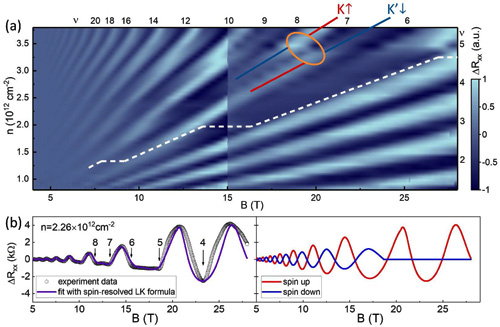Topic: Probing unconventional Landau levels with strong interactions in atomically thin transition metal dichalcogenides
Speaker: Ning Wang 1
1Department of Physics and Center for Quantum Materials, the Hong Kong University of Science and Technology, Hong Kong, China
Time: 15:00-16:30, (Monday) April 23rd, 2018
Venue: Room 468,Lee Hsun Building, IMR CAS
Atomically thin transition metal dichalcogenides (TMDCs) are emerging as a new platform for exploring many-body effects. Coulomb interactions are markedly enhanced in these materials because of the reduced dimensionality and large effective masses. In this talk, I demonstrate our recent experimental study on quantum transport of few-layer WSe2 and MoS2 and their unconventional Landau levels (LLs) with strong interaction effects. We fabricate high-quality n-type MoS2 and p-type WSe2 devices by encapsulating these TMDCs in ultra-clean hexagonal boron nitride sheets which effectively eliminate impurity scattering and provide clean interfaces for making high-quality low-temperature ohmic contacts to these semiconducting TMDCs. Few-layer WSe2 and MoS2 field-effect devices with mobilities up to 22,000 cm2/V s have been achieved at cryogenic temperatures. We observe interesting quantum Hall (QH) phenomena involving the Q valley, Γ valley and K valley, such as the Q valley Zeeman effect in all odd-layer MoS2 devices and the spin Zeeman effect in all even-layer MoS2 devices and highly density-dependent QH states of Γ valley holes in WSe2. The predominant sequences of the QH states of Γ valley holes in few-layer WSe2 alternate between odd- and even-integers with reducing the density. Our results provide compelling evidence for many-body interaction effects in few-layer WSe2 and MoS2.

FIG. 1. Landau level fan diagram of the layer-polarized MoS2.
Brief biography
Prof. Ning WANG
Department of Physics The Hong Kong University of Science & Technology (HKUST)
Tel: (852)-23587489. Fax: (852)-23581652.
Email: Phwang@ust.hk
Website: http://physics.ust.hk/phwang
Prof. Ning Wang is Chair Professor of Physics, Director of Center for Quantum Materials and Director of Materials Characterization & Preparation Facility at the Hong Kong University of Science and Technology. His research interests include fundamental issues of nano-structure and nano-device technology, quantum transport of two-dimensional structure, and high-resolution transmission electron microscopy.
Professor Wang obtained his BSc (1985) and PhD (1990) degrees in materials physics from the University of Science and Technology, Beijing. In 1989, he received the Alexander von Humboldt Research Fellowship and worked at the Institute for Metal Physics, Goettingen University and the Fritz-Haber-Institute of the Max-Planck Society, Berlin, Germany. In 1993, he joined the Physics Department of the Hong Kong University of Science and Technology. During 1997-2000 he worked in the Department of Applied Physics and Materials Science, the City University of Hong Kong.
Professor Wang has authored/co-authored over 230 peer-reviewed research papers in reputed international journals, 30 conference papers, 2 Book chapters, 5 US Patents. He received Chien-Shiung Wu Physics Award (1990), State Natural Science Award (2005) and Achievement in Asia Award (2006).